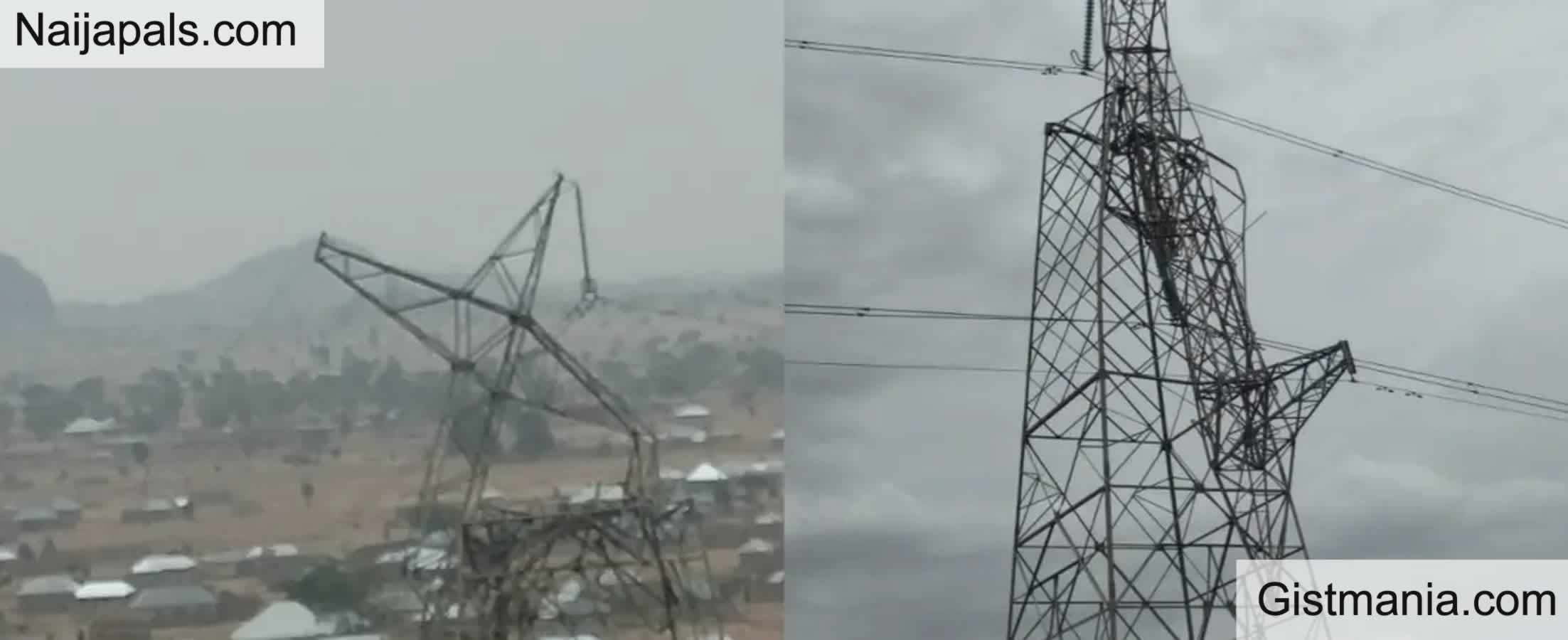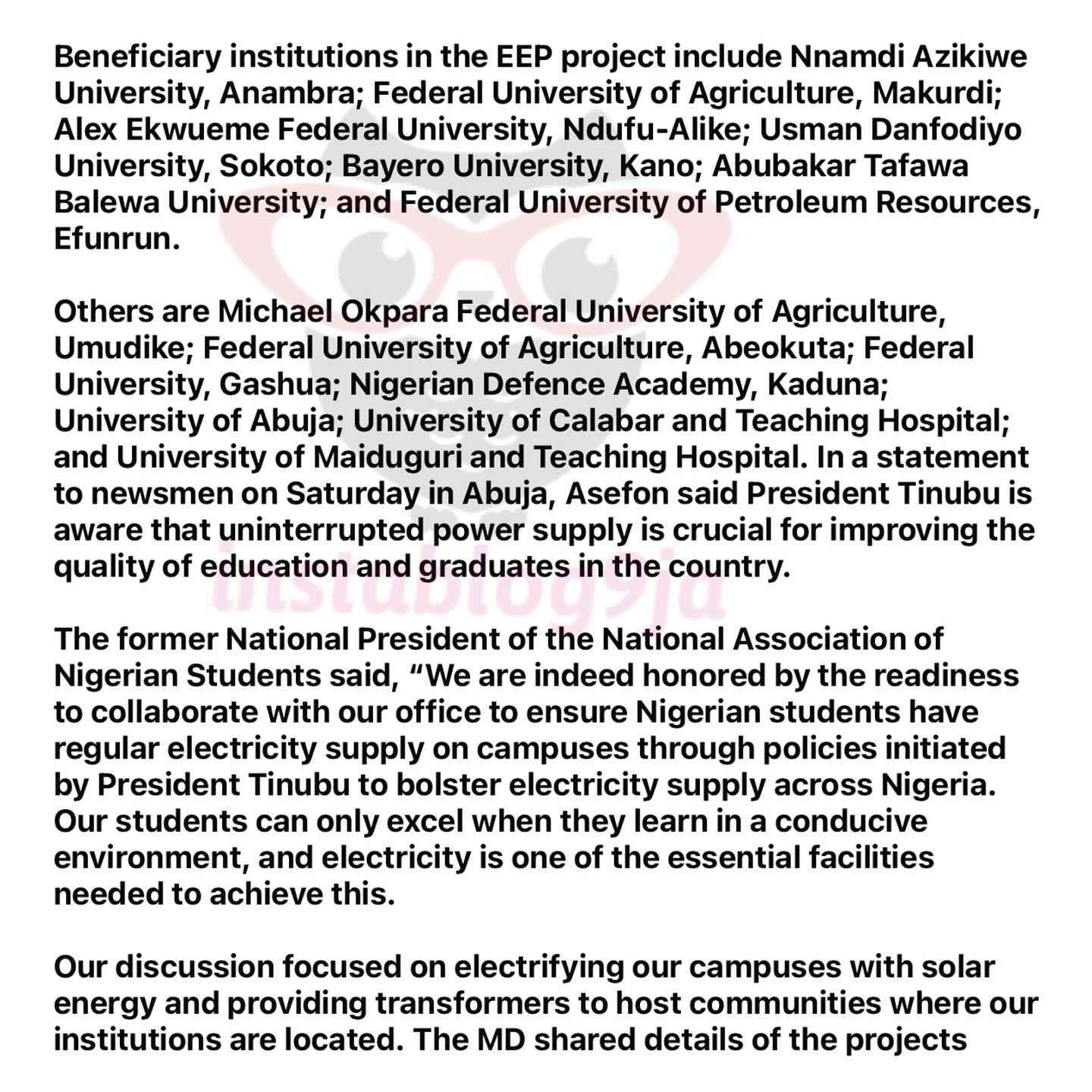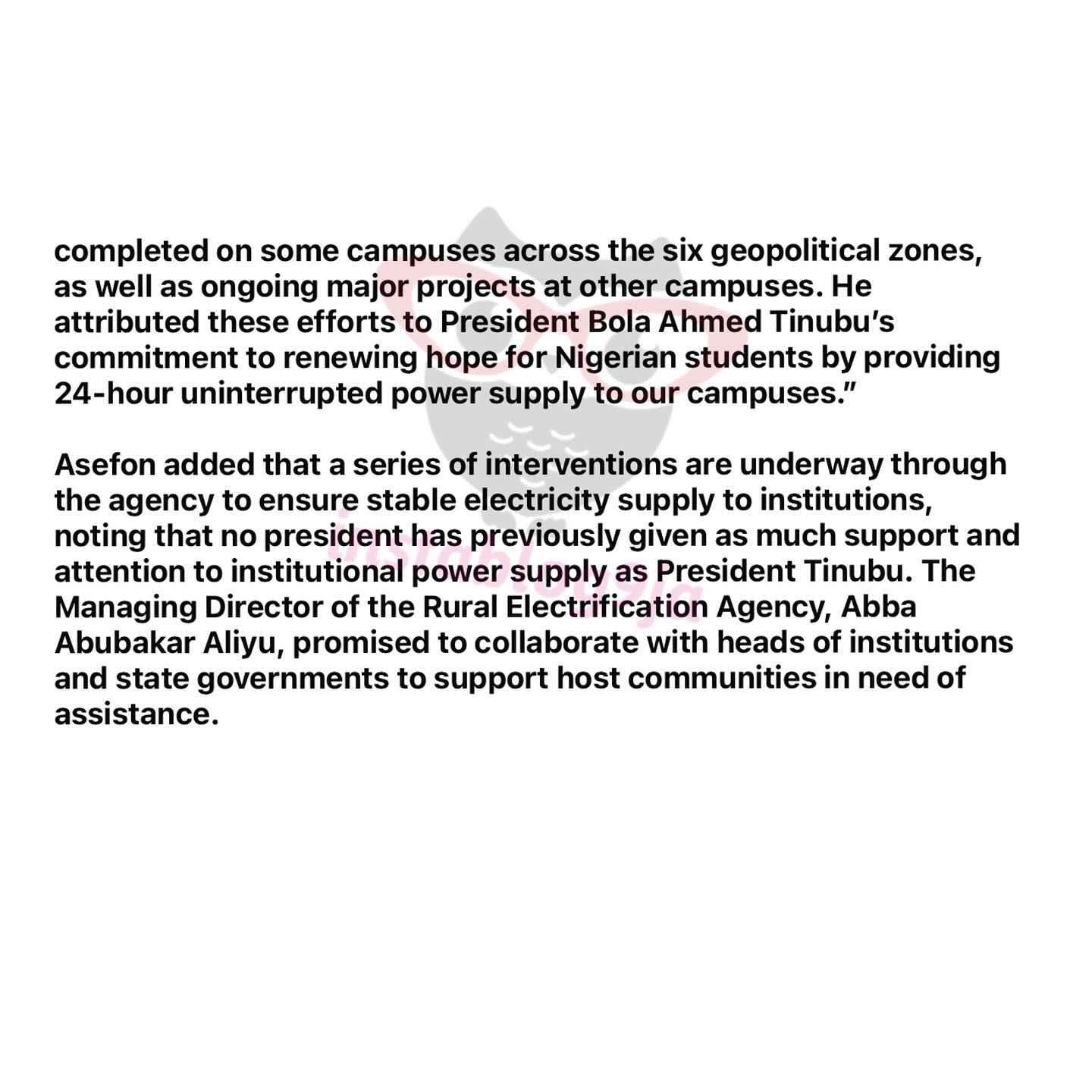
The Presidency has reaffirmed President Bola Ahmed Tinubu's dedication to ensuring that all higher education institutions in Nigeria benefit from a 24-hour power supply, enhancing the quality of education across the country.
This assurance was given by the Senior Special Assistant on Students’ Engagement to the President, Comrade Sunday Asefon, during a working visit to Abba Abubakar Aliyu, the Managing Director of the Rural Electrification Agency (REA) in Abuja.
In an effort to alleviate the financial burden on public universities caused by rising electricity tariffs—where some institutions are reportedly paying between N150 million and N300 million monthly for electricity—the Federal Government has invested over N38.9 billion in power generation for universities as part of the first phase of the Energizing Education Programme (EEP).
The EEP, launched by the Ministry of Power in collaboration with the REA, aims to provide reliable electricity through solar hybrid power plants to 37 federal universities and seven affiliated university teaching hospitals across Nigeria. This initiative is designed to reduce energy costs and improve the learning environment.
According to a document from the REA, the EEP is being implemented in phases due to budgetary constraints. The first phase, costing over N38 billion, has been completed, with solar hybrid power plants already handed over to the beneficiary institutions. The second phase is currently in the pre-commissioning stage and is set to be officially launched in the fourth quarter of 2024. The third phase, which is under construction, is expected to be commissioned by the second quarter of 2025.
This initiative reflects the Tinubu administration's commitment to improving the infrastructure and resources available to Nigeria's higher education sector, ensuring that students and faculty have access to consistent and reliable power for their academic activities.


| Posted: at | |





 TRENDING GISTS
TRENDING GISTS  I'm Building PDP, Not Tearing it Apart - Wike Addresses The Press (Video)
I'm Building PDP, Not Tearing it Apart - Wike Addresses The Press (Video) VIDEO: Man Caught While Waiting For a Minor he Had Solicited S£x From Online
VIDEO: Man Caught While Waiting For a Minor he Had Solicited S£x From Online Emotional Moment Femi Adebayo Presented His 2025 AMVCA Trophies to His Dad, Adebayo Salami
Emotional Moment Femi Adebayo Presented His 2025 AMVCA Trophies to His Dad, Adebayo Salami Rapper, Phyno Unveils His Daughter, Shares Adorable Video to Mark Her Second Birthday
Rapper, Phyno Unveils His Daughter, Shares Adorable Video to Mark Her Second Birthday Ex Madrid Player, Xabi Alonso Seals Managerial Move To Real Madrid As Ancelotti Bows Out
Ex Madrid Player, Xabi Alonso Seals Managerial Move To Real Madrid As Ancelotti Bows Out
 Retired Teacher, Mallam Kabiru Killed, Wife Abducted As Bandits Invade Zamfara School Quarters
Retired Teacher, Mallam Kabiru Killed, Wife Abducted As Bandits Invade Zamfara School Quarters Army Busts Gunrunning Syndicate in Plateau, Two Arrested With AK-47 (Photos)
Army Busts Gunrunning Syndicate in Plateau, Two Arrested With AK-47 (Photos) Ringside Rumble? Fans Hype Possible Boxing Showdown Between Small Doctor And Portable
Ringside Rumble? Fans Hype Possible Boxing Showdown Between Small Doctor And Portable